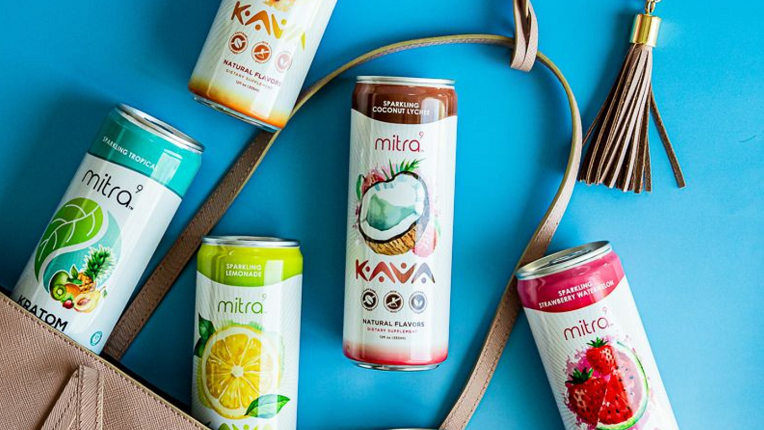The UK food and drinks industry has launched a campaign – dubbed Mmmake Your Mark – to try to get to grips with its problems in recruitment.
The campaign, funded by the IGD and endorsed by the UK government, is aiming to showcase the UK food and drink sector as a “dynamic and vibrant place to work”.
What impact could the campaign have?
What’s the issue here?
Put bluntly, a significant percentage of younger people in the UK don’t want to work in the food and drinks industry, compounding food security fears linked to labour shortages areas following the country’s departure from the EU.
Last year, the UK government-commissioned Independent Review into Labour Shortages in the Food Supply Chain was published, providing recommendations to help the government and industry continue to tackle these issues.
In his foreword, review chair John Shropshire, chairman and former CEO of farming and marketing business G’s Fresh Group, said: “The industry currently faces difficulties in recruiting and retaining an adequate workforce. Factors such as low unemployment rates, changes in labour market dynamics and reduced access to workers from the European Union have contributed to these challenges. Additionally, overly bureaucratic and slow administration of visa applications during periods of stress and conflict have had a substantial impact.
“Access to migrant labour has been crucial for filling labour gaps in the food supply chain but acquiring migrant labour has become increasingly challenging.”
None of this would have come as a surprise to the food industry with meatpackers and agri-food businesses bearing the brunt of post-Brexit labour shortages but recruitment problems being an issue more generally.
Before the UK General Election in July, Just Drinks sister site Just Food asked representatives of food industry bodies for their action wish-list from the next government.
Nick Allen, CEO, of the British Meat Processors Association (BMPA), which represents UK meatpackers, said the sector had faced labour issues since the country’s departure from the EU stymied its ability to bring in workers from abroad.
“Labour is a big one for us. There needs to be recognition that our sector has got specific requirements, which needs to cut through the other noise around the politics of immigration,” Allen said.
Another review, which was published this summer, concluded the UK’s Seasonal Worker Scheme (SWS) needs to be retained in the short-to-medium term.
Government advisers on the Migration Advisory Committee, which compiled the report, recommended that more flexibility around visas is required to “enable employers to plan more efficiently”.
The current SWS began life as a pilot in 2019 and will run until at least 2029. It was an acknowledgement that the end of the free movement of labour between the UK and the EU post-Brexit has left certain agri-food sectors facing a shortage of workers, leading to food security fears about supplies on supermarket shelves.
What is being done about it?
The Independent Review (let's call it) made a number of recommendations, although it should be noted these were recommended to a government that is no longer in power.
Among the recommendations was to retain the SWS, with improvements including the consideration of removing the cap on the total number of visas and extending the length of visas to nine months.
The review also recommended the eligibility criteria for the skilled worker route to reclassify occupations so they become eligible and reduce the high financial costs to access the route. It said it is essential that reviews of the Shortage Occupation List (SOL) take place more frequently and the English language requirement is relaxed.
Another recommendation was that the Apprenticeship Levy should be reformed with industry input to provide a skilled workforce and enable greater access for SMEs [small- and medium-sized enterprises].
Industry body the Food and Drink Federation (FDF)’s recent State of Industry Report also highlighted that reforms to the Apprenticeship Levy would “help the industry thrive by addressing both the skill gaps and labour shortages”.
Perhaps the most interesting recommendation form the Independent Review was to implement a comprehensive strategy to enhance sector attractiveness.
To improve the image of the sector, the review suggested a role for the UK’s Food & Drink Sector Council (FDSC). The council is a “formal” partnership between government and industry, with members including industry bodies the FDF and the British Retail Consortium, supermarket giant Tesco and food and beverage heavyweight PepsiCo. The review said the council must lead a “comprehensive strategy” that includes communication campaigns targeted at changing public perception about the sector and developing careers advice provided by schools and education/training providers.
While the new government will have its own thoughts about how to tackle the sector’s labour issues of course, it has backed this last recommendation.
Two weeks ago, the government-endorsed Mmmake Your Mark campaign was launched, showcasing the sector as a “dynamic and vibrant place to work”.
The campaign, convened by the IGD, on behalf of the FDSC, quoted recent research that showed that nearly half (49%) of 16-24 year olds have never considered a career in the food and drink industry and that he roles of software engineer (51%), data scientist (41%), technologist (41%) and biochemist (36%) are four job roles that 16-24-year olds are unaware exist in food and drink.
Mmmake Your Mark is described as “the beginning of closer industry collaboration to attract future talent into the sector”.
The statement accompanying the launch said work is already underway to strengthen ties between the industry and the careers system, including rolling out nationwide initiatives in schools, colleges, job centres, and prisons “to inspire more people to go further with food and drink”.
Daniel Zeichner, the new Labour government’s minister for food security and rural affairs,” said: “Food security is national security, and the backbone of a robust food supply chain is a skilled domestic workforce.
“Attracting bright new talent to the industry is vital for the future of UK food and this campaign showcases the UK’s food and drink industry as a vibrant place to work, giving the next generation an opportunity to Mmmake Your Mark.”
Sarah Bradbury, the co-chair of the FDSC workforce sub-committee and the CEO of the IGD, said: “You can pursue a huge range of careers within food and drink – and together, we’ll show that it’s a place where each individual can make an impact, with great opportunities for development and progression.”
How has the food and drinks industry reacted to the campaign?
The IGD says the campaign has the support of more than 40 industry organisations, including the FDF, the Association of Independent Meat Suppliers and major food and drinks manufacturers including Nestlé, Twinings tea owner Associated British Foods and Coca-Cola Europacific Partners.
Elsewhere within the industry, there has been a positive response, as one might expect for an initiative that is attempting to create more jobs for an industry that has suffered labour issues for years.
Nan Jones, BMPA’s technical policy manager, told Just Food: “The campaign is a positive step which BMPA fully supports and which our members are getting behind. The focus on creating more localised job opportunities and addressing skill gaps in rural areas aligns well with the issues raised in the Shropshire Review on labour shortages.
Championing careers in the industry on a national scale and highlighting the sector's importance can make an impact.
Nan Jones, The British Meat Processors Association
“The food industry often struggles to attract attention as a viable and successful career path, so championing careers in the industry on a national scale and highlighting the sector's importance can make an impact both in the short term to fill current vacancies and in the longer term.”
Rod Addy, director general of The Provision Trade Federation (PTF), which represents manufacturers in areas such as meat, dairy and seafood, added: “The PTF wholeheartedly endorses the Mmmake Your Mark campaign’s mission to showcase the attractiveness of the food industry to job seekers. In particular, the campaign’s emphasis on highlighting the variety of roles even within food manufacturing is sorely needed.
“What is called for is a truly coordinated approach embracing all public institutions, including learning bodies, prisons and charities. Many posts within the sector require a high level of skill, which is why the PTF would argue for a re-evaluation of the £38,700 ($50,356) salary threshold for skilled worker visas, to include butchers, production managers, food safety and technical personnel. UK salaries for all these professions are currently below the threshold, yet they are vital to keeping food factories running.”

Balwinder Dhoot, director of sustainability and growth at the FDF, said: “As the UK’s largest manufacturing sector, it is vital that we encourage new talent to join the food and drink industry. Our industry has lots of great jobs and a productive and diverse workforce will help our industry to thrive and identify creative solutions to future challenges. We’ll continue to work closely with the Food and Drink Sector Council, alongside other industry partners, to inspire the next generation to join our sector.”
At the British Soft Drinks Association, its director general Gavin Partington also welcomed the move. He said: “One of the most important keys to success in soft drinks is our people and any scheme with the goal of helping the industry thrive and grow can only be a good thing.
“Our members are committed to investing in skills for the future, both for the people already working in soft drinks and for those taking their first steps into employment, and Mmmake Your Mark further supports these efforts.”
Is the campaign likely to work?
Making the food and drinks industry attractive to UK jobseekers will need to be deftly handled in an era in which manufacturing of any kind struggles to attract talent when other career choices are seen as more glamorous and rewarding.
What is certain, however, is some of the larger issues around labour, those linked to the UK leaving the EU especially, will remain.
The new Labour government has talked about the importance of food security and, in Zeichner, now has a minister for food security and rural affairs, but what this means in terms of action is the important thing.
A Policy Exchange report published earlier this month outlined steps for industry and the UK government to drive innovation and support growth in the country's largest manufacturing sector. It was welcomed by the FDF, which supported the call for the government to develop a national food security strategy that encompasses the entire food ecosystem.
Karen Betts, the FDF CEO, said: “Taking the right policy decisions now, weighed across Whitehall departments and as recommended by Policy Exchange, will lay the foundations for UK food security into the future.”
Meanwhile, UK Prime Minister Keir Starmer’s recent meetings with French and German leaders were said to be part of a wider "reset" of relations with the EU.
But mindful of alienating Brexit voters, and even more mindful about the current narrative around immigration, Starmer was careful to stress his government has no plans to agree to an EU proposal that could allow young people to live in the UK for up to four years – and vice versa. In its manifesto, issued before July’s General Election, it said it would reduce net migration as “failure to do so reduces the incentives for businesses to train locally”.
Labour said it would ensure that migration to address skills shortages “triggers a plan to upskill workers and improve working conditions in the UK”.
But it warned: “The days of a sector languishing endlessly on immigration shortage lists with no action to train up workers will come to an end.”
And therein lies the rub. The Mmmake Your Mark campaign may well be able to convince graduates or apprentices keen on data scientist, technologist and biochemist careers that this is an industry well worth considering, but big gaps will remain in less skilled areas. Working in an abattoir or fish processing factory or doing back-breaking work picking fruit and vegetables in the fields is not such an easy sell to the domestic population. That’s why it's been largely migrants doing these jobs in the first place.
In its recently-published Meat Industry Manifesto, the BMPA warned: “The British abattoir industry is under threat from falling farm production, increasingly onerous trade barriers and a systemic labour shortage. Abattoir numbers have declined from around 2,500 in the 1970s to just 203 today.
“This should worry UK consumers and government alike because, once we go beyond a tipping point where we don’t have a viable abattoir industry, it will lead to a sharper decline in domestic farming, a heavier reliance on imported meat and the loss of a key pillar of UK food security.”
Unfortunately, the word abattoir is unlikely to appear in any scheme trying to attract UK talent into the food industry.
















